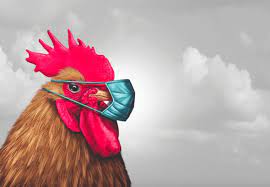Poultry farmers in Antigua and Barbuda are encouraged to implement biosecurity measures to strengthen their resilience to the current Avian Influenza outbreak in Belize, called Bird Flu.
According to veterinary officer Chere Kellman, Antigua and Barbuda shouldn’t be affected by the recent outbreak in Belize because it imports 70% of its chicken from Brazil and 30% from other countries like the United States. Nevertheless, practising biosecurity is crucial.
After finding Avian Influenza in the animals at a poultry farm in Blue Creek Village, northwest of the country, the Belize Agricultural Health Authority quarantined the facility.
“Bird Flu is a contagious form of influenza that affects birds rarely spreading to Humans,” said Kellman.
“Biosecurity is a method to stop the disease from spreading to your farm or flock of chickens. Due to avian influenza, it is crucial for both commercial and backyard flock owners to safeguard their herds through a robust biosecurity policy.”
According to her explanation, most chickens have two primary routes for disease transmission; direct transmission and Indirect transmission.
To successfully manage poultry flocks, according to Kellman, farmers should follow a few basic guidelines: “maintain their distance, keep the poultry clean, don’t bring disease home, detect the warning signals of contagious bird illnesses, keep a record of and report sick birds.”
“The processes will euthanize diseased herbs humanely, remove them from circulation, and minimize the exposure of healthy, uninfected flocks to help limit the illness,” she said in her conclusion. “These actions will certainly assure a reliable food supply.”
